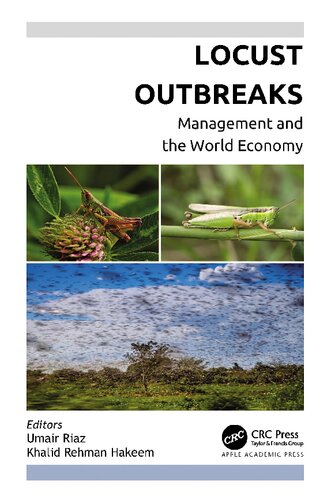

Most ebook files are in PDF format, so you can easily read them using various software such as Foxit Reader or directly on the Google Chrome browser.
Some ebook files are released by publishers in other formats such as .awz, .mobi, .epub, .fb2, etc. You may need to install specific software to read these formats on mobile/PC, such as Calibre.
Please read the tutorial at this link: https://ebookbell.com/faq
We offer FREE conversion to the popular formats you request; however, this may take some time. Therefore, right after payment, please email us, and we will try to provide the service as quickly as possible.
For some exceptional file formats or broken links (if any), please refrain from opening any disputes. Instead, email us first, and we will try to assist within a maximum of 6 hours.
EbookBell Team

4.0
26 reviewsHere is a comprehensive resource on the devastating effect of locust outbreaks on crop production along with valuable coverage of traditional as well as new and emerging control and mitigation strategies. Begining with an introduction to and history of locust attacks, the volume describes the deleterious effects of locusts on crops and delves into both traditional and state-of-the art control and management technologies to combat locust outbreaks, including such advanced technologies as geographical information systems (GIS) and global positioning systems (GPS) and methods such as employing entomopathogenic fungi as a pest control measure. The book also evaluates how climate change has exacerbated the damage from locusts and the environmental ramifications. The book considers the scientific aspect of the role of pheromones on the reproduction of locusts and discusses the culture of using locusts as a food source in some countries. Topically, the volume also considers the influence of the COVID-19 pandemic on locust outbreaks on the world’s economy.
This important and unique volume is a highly valuable resource for those working on meeting the challenges of locust invasions and their terrible consequences on crops, societies, and economies.